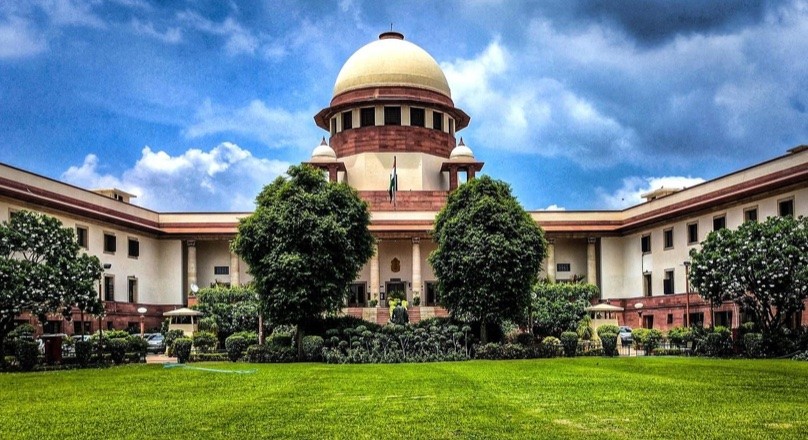SC Orders Sale Of Ancestral Shops Of Man To Pay Rs 1.25 Cr Maintenance For Abandoned Wife Of Son
Division bench said that it had been held that the court is not powerless, but can issue appropriate directions, for doing complete justice between the parties

The Supreme Court has recently directed for sale of six ancestral shops of a man whose son allegedly fled to Australia and married another woman, in order to realise a maintenance sum of Rs 1.25 crore for his son's wife, left abandoned here.
A bench of Justices S Ravindra Bhat and Aravind Kumar said that the past history of this case, and the orders of the court had demonstrated the utter obduracy of Varun Gopal (husband), who abandoned the wife and virtually fled to Australia.
The documents placed on record of this court, including the affidavits filed by the petitioner, and the bank account statements, reveal that considerable amounts of money were remitted to Varun Gopal, over a period of time, the court noted.
Relying upon the Supreme Court's judgments in the case of Subrata Roy Sahara (2014) and Skipper Construction (1996), the bench said, "It has been held that the court is not powerless, but can issue appropriate directions, and even decrees, for doing complete justice between the parties".
"The present case has displayed persistent defiant conduct by Varun Gopal, and the petitioner, Mohan Gopal (father-in-law) who have, through one pretext or another stalled compliance with the orders of this court. It is the responsibility of petitioner and Varun Gopal who are held liable to fulfil the payment of entire sum," the bench said.
The marriage between the parties took place sometime in 2012-13. The man was then employed in Australia. Following the differences, the woman filed criminal cases, and the husband and his parents applied for anticipatory bail. The husband did not participate in criminal or maintenance proceedings.
The court in 2019 ordered release of the father-in-law after 10 months in custody.
The husband, however, secured an ex-parte divorce decree on December 21, 2017, by the family court of Australia. After remarriage, he now has two kids from his second wife.
The court had earlier ordered the attachment of 11 shops of the father-in-law as the husband was the sole heir of the properties. It also ordered attachments of those shops that went through three unsuccessful auction sales.
The father-in-law submitted that he was not personally liable to the woman when her husband was alive. There is no law that can directly hold father-in-law to provide maintenance to the wife, he said.
The man also submitted the woman had not yet accepted the decree granted in favour of her husband by the foreign court and had instead challenged the decree, therefore, could not seek permanent alimony.
He also said that he was ready to offer Rs 75 lakh in addition to 22 lakh as one one-time full and final lump sum amount towards her entire claim of past, present, and future, subject to the condition that all cases either criminal or civil or execution against the petitioner were withdrawn or brushed aside.
The bench, however, directed the Delhi High Court to put six contiguous shops for sale in order to release the best price and attachment of rents of other properties till realisation of Rs 1.25 crore. The court also directed for transfer of title in the woman's name if she desired so and if the sale was not effected within three months.
